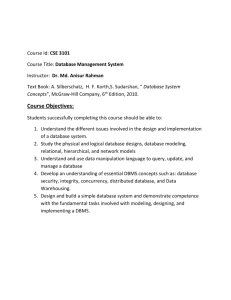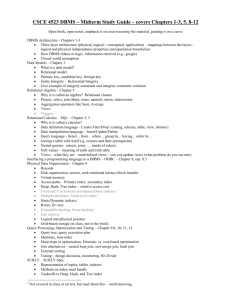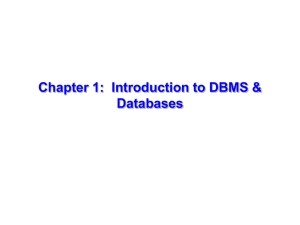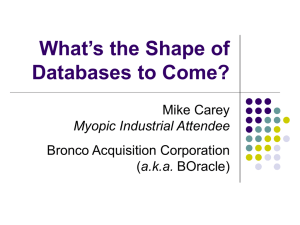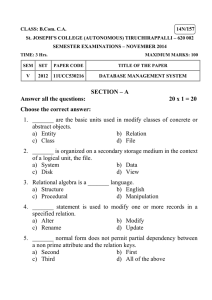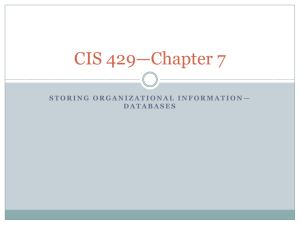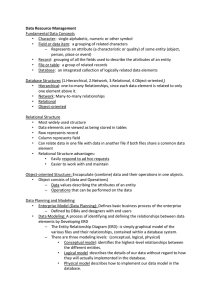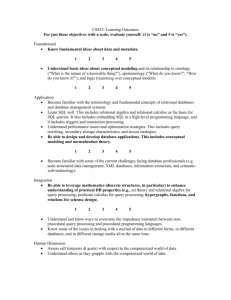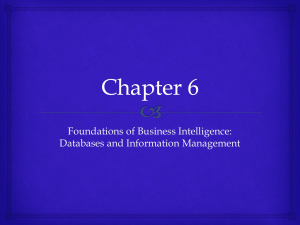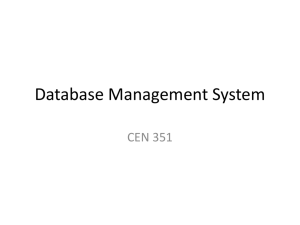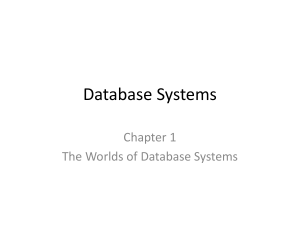Concepts of DBMS Course Syllabus
advertisement
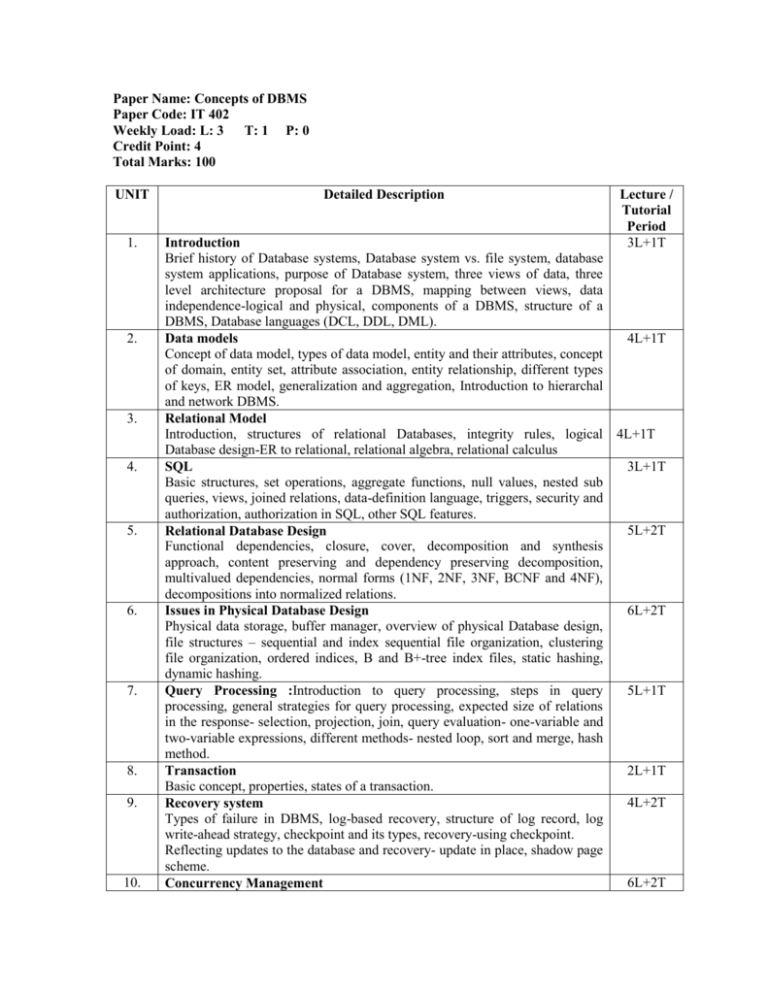
Paper Name: Concepts of DBMS Paper Code: IT 402 Weekly Load: L: 3 T: 1 P: 0 Credit Point: 4 Total Marks: 100 UNIT 1. 2. 3. 4. 5. 6. 7. 8. 9. 10. Detailed Description Lecture / Tutorial Period 3L+1T Introduction Brief history of Database systems, Database system vs. file system, database system applications, purpose of Database system, three views of data, three level architecture proposal for a DBMS, mapping between views, data independence-logical and physical, components of a DBMS, structure of a DBMS, Database languages (DCL, DDL, DML). 4L+1T Data models Concept of data model, types of data model, entity and their attributes, concept of domain, entity set, attribute association, entity relationship, different types of keys, ER model, generalization and aggregation, Introduction to hierarchal and network DBMS. Relational Model Introduction, structures of relational Databases, integrity rules, logical 4L+1T Database design-ER to relational, relational algebra, relational calculus 3L+1T SQL Basic structures, set operations, aggregate functions, null values, nested sub queries, views, joined relations, data-definition language, triggers, security and authorization, authorization in SQL, other SQL features. 5L+2T Relational Database Design Functional dependencies, closure, cover, decomposition and synthesis approach, content preserving and dependency preserving decomposition, multivalued dependencies, normal forms (1NF, 2NF, 3NF, BCNF and 4NF), decompositions into normalized relations. 6L+2T Issues in Physical Database Design Physical data storage, buffer manager, overview of physical Database design, file structures – sequential and index sequential file organization, clustering file organization, ordered indices, B and B+-tree index files, static hashing, dynamic hashing. Query Processing :Introduction to query processing, steps in query 5L+1T processing, general strategies for query processing, expected size of relations in the response- selection, projection, join, query evaluation- one-variable and two-variable expressions, different methods- nested loop, sort and merge, hash method. 2L+1T Transaction Basic concept, properties, states of a transaction. 4L+2T Recovery system Types of failure in DBMS, log-based recovery, structure of log record, log write-ahead strategy, checkpoint and its types, recovery-using checkpoint. Reflecting updates to the database and recovery- update in place, shadow page scheme. 6L+2T Concurrency Management Basic concepts: Concurrency and possible problems-Lost update problem, Inconsistent read problem, phantom phenomenons, serializability- serializable schedule, precedence graph and serializibility test. Locking- different typestwo phase locking- granularity of locking- hierarchy of locks and intentionmode locking, time-stamp based ordering, optimistic scheduling, multi-version techniques, deadlock detection and Recovery, deadlock avoidance. TOTAL: Total Week Required: No. Of Week Reserved: Books: Text and/or Reference: 1. An Introduction to Database Systems-Bipin C. Desai 2. Database Systems Concepts (4th Edition) – Korth et. al. – MH International Edition 3. Fundamentals of Database Systems – Elmasri and Navathe – LPE 4. An Introduction to Database Design – Date – Pearson Edition 5. Database Management Systems – Majumdar & Bhattacharyay – TMH 42L + 14T 14 02
